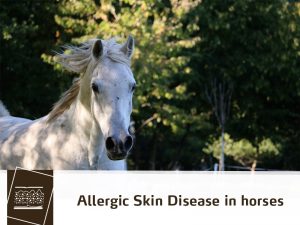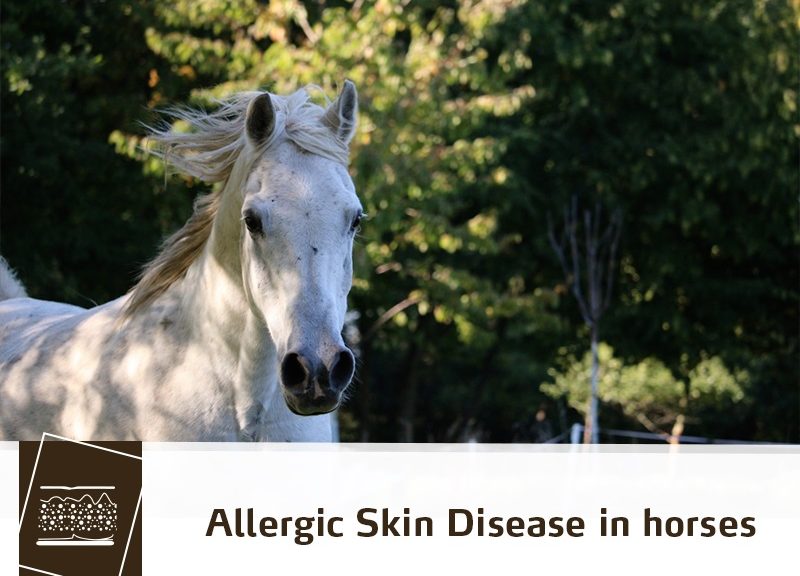
An allergy is a hypersensitivity reaction that occurs when an animal comes in contact with a particular allergen that exists in its environment. The reaction can happen through direct skin contact or breathing in of the allergen. Horses can suffer from different types of allergy and it can occur in any gender or breed.
Common signs of allergy in horses include mild to severe itchiness, reddened painful skin, urticarial, lumps, and a wide variety of skin damage (excoriations, crusts, scales, etc.).
Skin allergies can have many different causes but the most common cause is sweet itch (insect bite hypersensitivity). Sweet itch is usually caused by biting midges but other insects can also cause a reaction. Some types of flies may prefer to bite on the horse’s head, ventral abdomen, legs, chest, and back, but some insects will just bite anywhere on the body.
Atopy is a condition that also involves an inappropriate immune response to offending allergens that leads to dermatologic clinical signs. In many cases atopic horses show respiratory signs as well. Arabian and Thoroughbred horses appear to be predisposed to develop atopy which may suggest that this could be an inherited condition. It can be caused by more than one allergen and pollens, moulds, grasses, trees, fabrics, and dust have been associated with this condition. The clinical signs may be mild initially and progress over time.
Horses can also be affected by food allergies although these are less common. In food allergy the horse suffers an immune mediated adverse reaction to a specific type of food. The foods that are most often associated with these reaction include malt, barley, beet pulp, bran, clover, St. John’s wort, wheat, oats and chicory.
If a horse shows itchiness and skin disease contact your vet. It is very important to find the cause in order to proceed with the appropriate treatment and preventive measures. The treatment for these conditions usually involves managing the symptoms and removing the cause, if possible, or at least reducing allergen exposure.
Would you like to know more about horses? Check our Equine Courses:
